
Kailah Casillas (pictured above), 22, grew up watching MTV's The Real World with her dad. The series, which first aired in 1992, allowed them to bridge their generational divide. Together, they observed each new group of young people -- a diverse selection of race, sexual orientation, religion, and background -- as they bonded and battled over their differences.

On March 17, the Florida native will appear as a cast member on the show's 31st season, which is set in Las Vegas. One month before she was set to begin filming, her father -- a Puerto Rican son of a conservative religious leader -- pulled her aside and explained how The Real World did more for him than provide entertainment. Watching Pedro Zamora (pictured below), a Cuban-American man with HIV who appeared on the show's third season, changed his mind about gay people, he revealed.
"It's crazy that a reality show can change someone's mind in such a big way," said Casillas with awe at a recent MTV press junket.
Zamora changed the hearts and minds of a lot of people. In 1994, he made television history when he participated in a commitment ceremony with his partner, Sean Sasser. He also made national headlines when he died of an AIDS-related illness, just hours after The Real World's season finale aired.
Bill Clinton, who was president at time, even released a statement after Zamora's death.
"In his short life, Pedro educated and enlightened our Nation," Clinton wrote. "He taught all of us that AIDS is a disease with a human face and one that affects every American, indeed every citizen, of the world. And he taught people living with AIDS how to fight for their rights and live with dignity."
The spirit exhibited by Zamora -- one that fights for change and "dignity" for underrepresented groups, as Clinton eloquently stated -- is also shared, to an extent, by MTV. Since its launch in 1981, the network has given voice to the revolutionary ideas of young people and the countless artists they've idolized through music videos, reality television, and now, scripted programming.
The track record isn't perfect. In its early years, the network failed to showcase black artists, a circumstance once rightfully and memorably questioned by David Bowie in 1983. Its Video Music Awards continues to have highs and lows. Even in 2015, Nicki Minaj, responding to a nomination snub for Video of the Year, said, "Black women influence pop culture so much, but are rarely rewarded for it."

But from game-changing figures like Pedro Zamora to shows like Daria, which skewered white suburban normalcy, MTV has undeniably pushed boundaries in a way that is unique from other networks. Judging by its current lineup of shows, which include Faking It, Awkward, Teen Wolf, The Shannara Chronicles, MTV Suspect, and Real World: Go Big or Go Home, this push continues.
[RELATED: "MTV's Best Moments of Inclusion"]
Faking It -- a teen comedy set in a world where it is cool to be gay -- is one of the most LGBT-inclusive shows on television. The show has a gay executive producer, Carter Covington. Its gay star, Michael J. Willett (pictured below), portrays a gay character, Shane Harvey, which is in itself a small miracle. And in addition to having the only intersex character on television, the series, after a nationwide search, also recently added a transgender male character, Noah, who is played by trans actor Elliot Fletcher.

"I'm a big believer that trans actors need the opportunity to tell their own stories, if at all possible," Covington told The Advocate. "I think they bring an authenticity that's really important and essential for the part."
While Fletcher's identity was important to the casting, it will not figure prominently in the storyline. This is intentional, as it fits into the universe of acceptance. And as marriage equality is now a reality in the United States, topics like coming out, which were once central themes for LGBT characters, are treated as nonissues in Faking It.
"The thing about Faking It that is interesting to me is we don't spend that much time on coming-out stories or disclosure stories," Covington said. "We want to deal with what happens afterward."
Speaking from personal history, Covington cited Zamora as an inspiration when he himself was a young closeted man in the South. He remembered Zamora as "the first connection" to a person who was HIV-positive, who "gave me a lot of courage and started me in the process of coming out."
"MTV, they've never been scared of public blowback," he said. "They've never been fearful of crossing a line with advertisers. I think they're known to really present a reality that most young people in their audience are dealing with, and I applaud that."
"When I pitched this show to them, I specifically said, 'I think this show can live in your history, in your DNA of supporting and being in the forefront of including LGBT and diverse characters in your programming,'" he added. "As a network, they continue to look at how they can push the bar forward and be on the cutting edge."
Willett agreed. He described the work Faking It does as more than just entertainment. It also helps to advance the cause of LGBT rights.
"I feel that's the torch that our show is carrying, is one that is bringing up issues or topics that are sensitive or taboo and bringing them to the limelight, and creating conversation," he said. "That's what we need: we need more conversation about all of these things, and that's a legacy I'm proud to a part of."

As Hollywood grapples with a lack of women both in front of and behind the camera, another teen comedy, Awkward, has been making its own strides since 2011. One of the first scripted hits for MTV in the new millennium, the show has a female showrunner, Lauren Iungerich, and a female lead, Ashley Rickards.
As Jenna Hamilton, Rickards not only shows how teenage girls struggle with the complexities of sex, friendship, and high school society -- she shows women how they can be the stars of their own stories. That Awkward should turn out to be critically acclaimed -- it premiered in 2011 and is now in its fifth and final season -- shows just how rewarding this representation can be.
Reflecting on this legacy, Rickards discussed the show's impact on women, herself included.
"What it means, I think more so for the millennial and Gen Y generations, is that women can be a hero. They always don't have to be the underdog and victim," Rickards said. "They can be the hero and they can be strong. And there are mistakes made and there are lessons learned, and there's always a victory. And it's up to you to define that, and it's up to you to make that choice."
"In that sense, the show's been really empowering," she added, "not just for the fans to watch, but for me as a woman in this industry, getting to direct and learning at 22 [the] dynamics of the different personalities on set."
At this point, it is might be challenging to meet a queer person who hasn't heard of Teen Wolf. The show periodically makes headlines for introducing a diverse lineup of creatures that includes, most recently, a bisexual Buddhist werewolf. The show's cast is proud of this reputation. Like Hester High School in Faking It, Beacon Hills shows viewers a world where diversity is not only a gold standard, but the norm.
"As far as Teen Wolf goes, we have a lot of diversity, whether it's sexuality, race, strong females beating the shit out of men," said actress Shelley Hennig, who pointed to her own character, Malia Tate, and the fact that Malia is the "butchier" person in a heterosexual relationship as being further evidence of the show's progressiveness. "I think that's what makes our show so great. Our little world? Our little Teen Wolf world? No one questions that. It's normal to them."
"Shelley took the words out of my mouth," added Khylin Rhambo, who plays Mason Hewitt. "Beacon Hills has created its own world that's admirable, in a sense. It's so harmonious, where [diversity is] not even spoken about."
"I feel like that can actually help other people," he said, "just seeing that's possible to be around so many different types of people, and they're all together, and ... they like each other for who they are."
"It comes down to the writers specifically [making] those choices," said actress Arden Cho (Kira Yukimura), noting how a diverse writers' room with several women has resulted in the creation of characters that pass the Bechdel test with flying colors. It also led to her own casting as an Asian-American actress.
"Kira is a perfect example," she explained. "If they would have written Kira as Kira Smith, it would have just been a white girl. But they chose Yukimura [as the character's last name], forcing her to be Asian. And then once they met with me, they decided to figure out who my parents were going to be. There were episodes set to talk about our history and our background."

"I feel like Teen Wolf actually invests the time to do that into the characters, allowing people to actually learn and be invested," she concluded. "That's why people like the show."
In providing a role model for others, reality mirrors fiction when it comes to Teen Wolf. One of its alumni, Charlie Carver, recently came out as gay on Instagram. When asked for reactions, cast members, including one of his best friends, Holland Roden, were surprised Carver hadn't been out publicly beforehand. He was open about his identity among friends and colleagues. ("Professionally, there's that whole other aspect," she said.) In fact, Roden was reminded by her friend of the ongoing importance of coming out publicly, even if it might mean a career gamble.
"When you are a gay male in young Hollywood, especially, and you play that leading man character... you are caught between this rock and this hard place of, Is it needed to come out in 2016? And he came to the conclusion, Yes, it was. Because although we live in Los Angeles, and I live in West Hollywood in a bit of a bubble in the entertainment industry, there are places where you can't even go as a gay man in 2016. He did feel it was important to take a stand and say, This is part of who I am."
She then quoted Carver, who had told the world, "I owe it to myself, more than anything, to be who I needed when I was younger."
[RELATED: "Holland Roden Responds to Teen Wolf Castmate Charlie Carver Coming Out"]

The Teen Wolf cast also spoke about how Carver has already challenged Hollywood in how it handles a gay actor with his leading man potential. "Only time will tell," said actor Gilles Marini, of Sex and the City fame. He bemoaned how producers and creators can still be nervous about such factors. "In 2016 we should be past that," he said.
Roden added that, as twins who are actors doing projects together, "Those boys are carving their own path as it is."
As Teen Wolf demonstrates, a show does not need to be set in the real world to help push for change. Ask the creators of The Shannara Chronicles, a fantasy series based on the books by Terry Brooks. Its characters may battle demons, but they also wage political battles that will sound familiar to contemporary Americans.
Xenopobia is one central conflict. The show's creators, Alfred Gough and Miles Millar, compared a war in their world's past to "America after 9/11, where you had a moment in time when you could have reached out and been inclusive" and yet failed do so. They cited the military prison at Guantanamo Bay as one of the real-life parallels for an episode, in which a character realizes that "a kindly old king" was actually someone who "tortured people for the good of the world."
Throughout The Shannara Chronicles, characters, like viewers, go on "a journey of enlightenment," where the preconceptions they held about people and races being good or evil are dispelled. That the races happen to elves and gnomes are just incidental.
"If you look closely, this show does have a strong point of view about xenophobia and about prejudice and about race relations and about America and its responsibilities to the world at large," Millar said. "That's the responsibility of good science fiction. We certainly, hopefully have done that in the show. That was certainly our aim."

"We decided if we do it with hot people, people will watch," Gough added with a laugh, nodding to the handsome actors Austin Butler (pictured above) and Aaron Jakebenko, who were also in the room.
As magical as scripted television might be, reality TV, which has historically led the way with diversity, is still holding this torch. A new show, MTV Suspect, has already made history with its choice of an out cohost -- LGBT activist iO Tillett Wright. Each week, Wright, alongside Nev Schulman, will be investigating suspicions of every nature, including one that pertains to a family member's gender identity. In fact, nearly all of the episodes involve an LGBT person in some capacity, Wright revealed to The Advocate.
"It's not about scandalizing people's lives. It's more about actually helping people figure out how to communicate with each other," Wright said, especially "people that they love."
On set and with her cohost Schulman, who is white, cisgender, and straight, Wright's presence inspired questions regarding gender spectrum, pronouns, and identity. With MTV Suspect, Wright hopes to bring these conversations into America's living rooms.
"MTV is such a mainstream market," Wright said. "Just having someone like [Schulman] say, 'Hey, I want to get this right on-camera,' and be like, 'What are your gender pronouns?' That's a huge move."

Last, but certainly not least, is one of the longest-running reality shows in history: The Real World, which was changed to Real World in 2013, which is now Real World: Go Big or Go Home. Throughout the decades, the show's name has been changed, and this season involves a Survivor-like twist of elimination through challenges.
However, the show's elegantly simple premise -- a sociological experiment of strangers from different backgrounds being bottled together -- endures. While the cast members -- one of whom identifies as pansexual -- did not go into details at the MTV press event, they did share that the debates that have been surging through the political caucuses -- issues like race, sexuality, xenophobia, religious freedom, and more -- will come to a boil this season.
While these debates are new, they are, like Real World and the real world before it, as old as time.
"It was the first reality show that touched on anything like that, and it made a difference at the time," Casillas concluded, in a nod to Zamora and his impact. "For us to be a part of something like that ... it's cool we're able to carry on [that tradition]."
Correction: Carter Covington is not the creator of Faking It. The Advocate reported originally that Covington was a "creator." The creators of the MTV show are Dana Goodman and Julia Lea Wolov, according to IMDB.


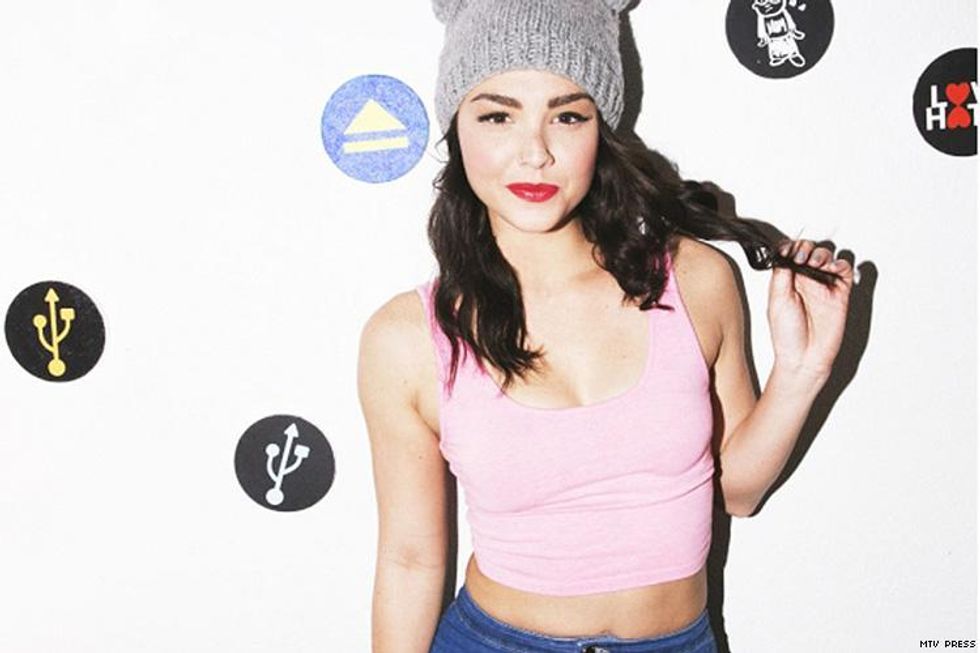
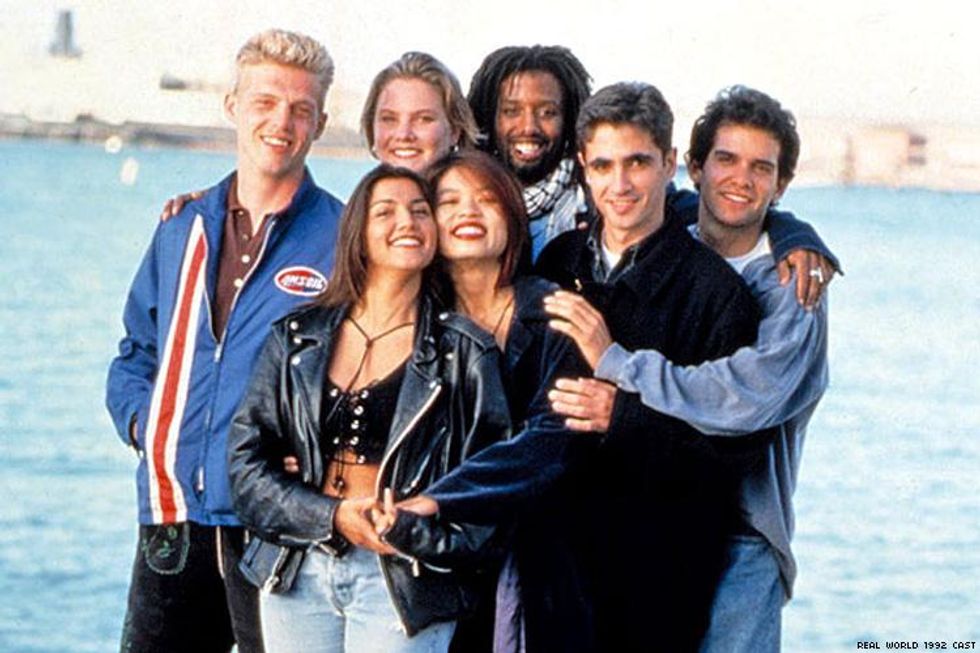
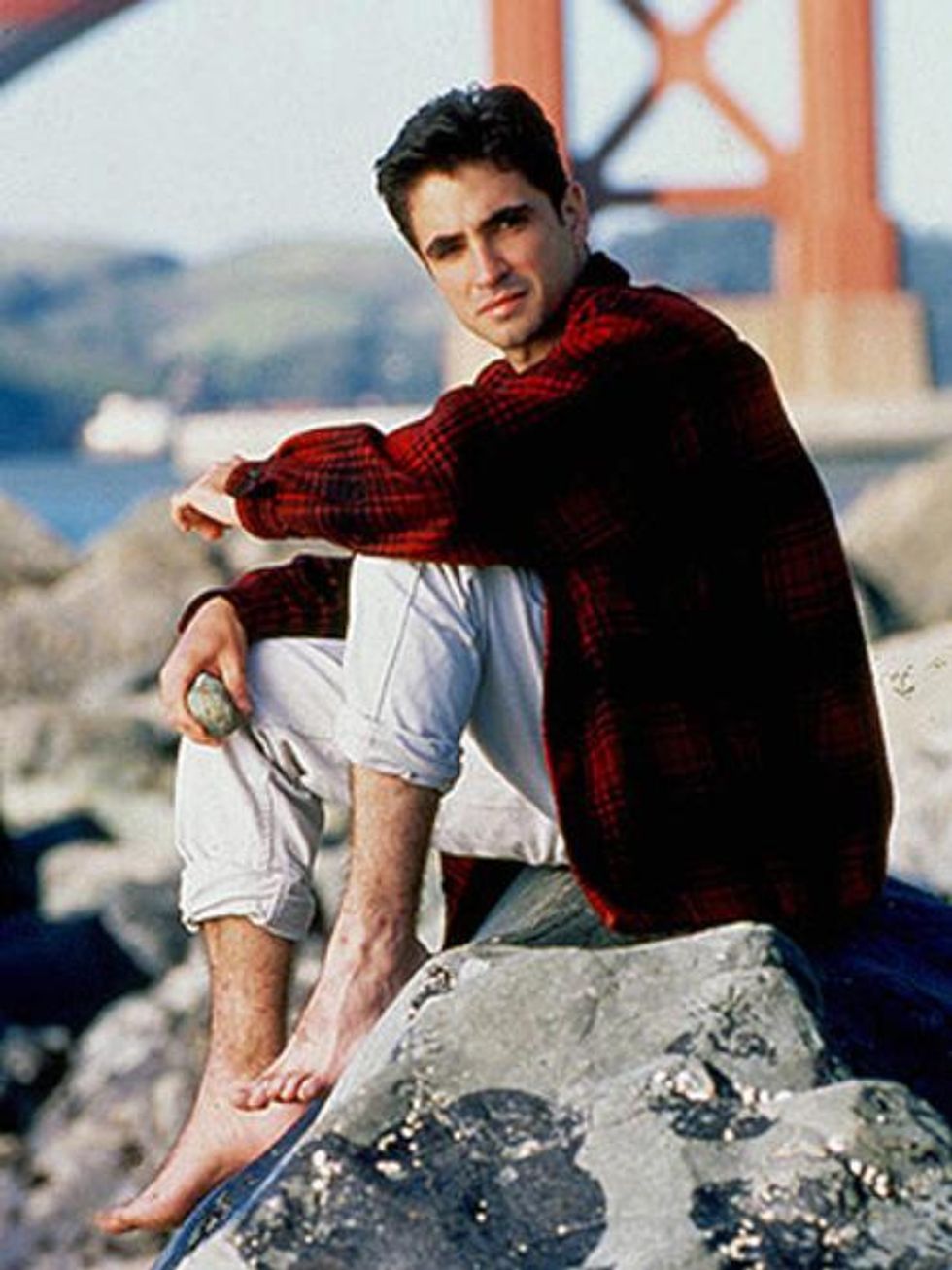
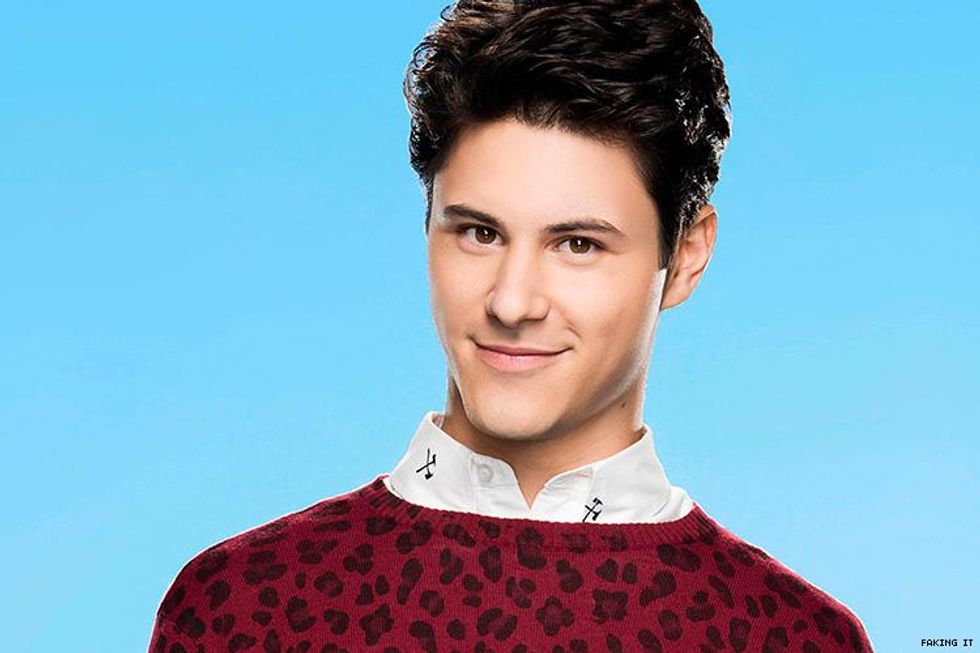
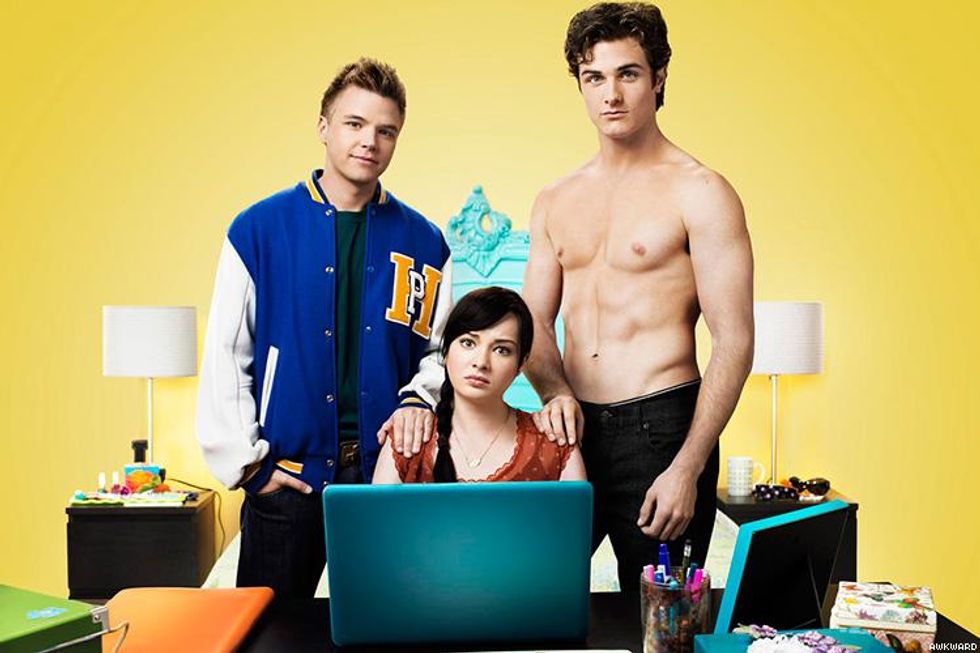
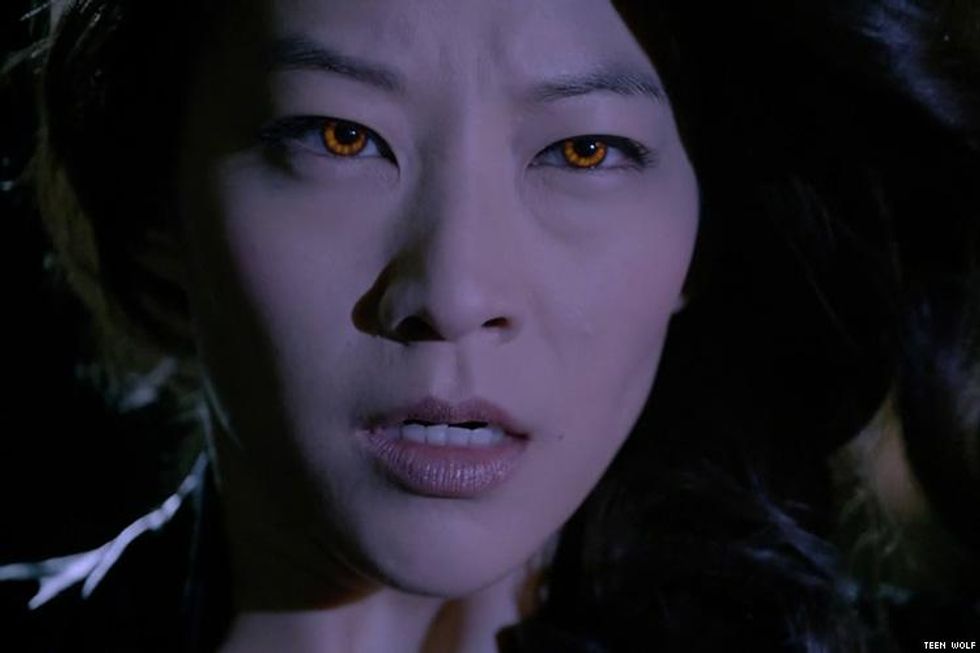
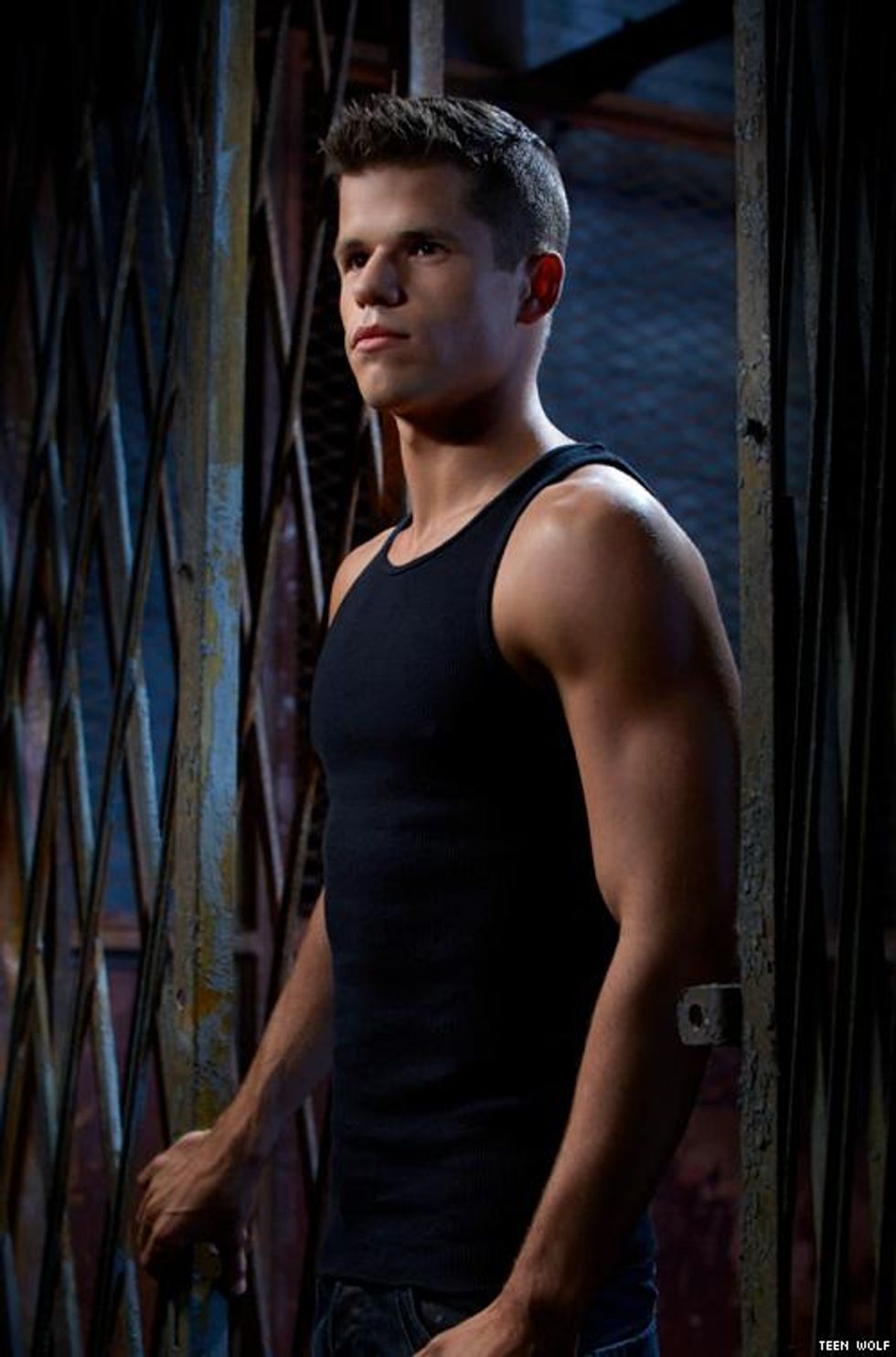
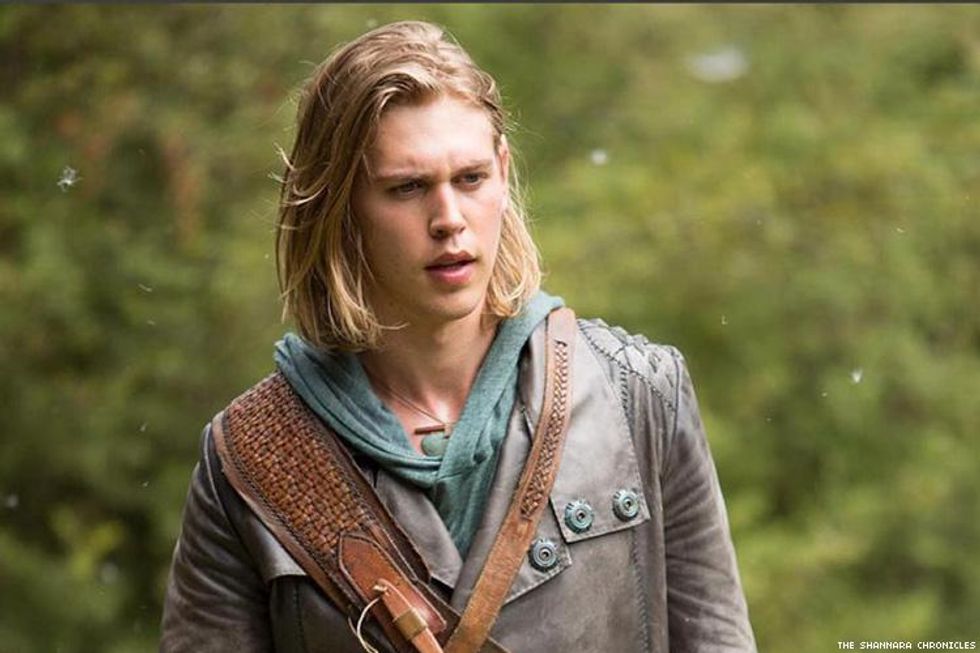
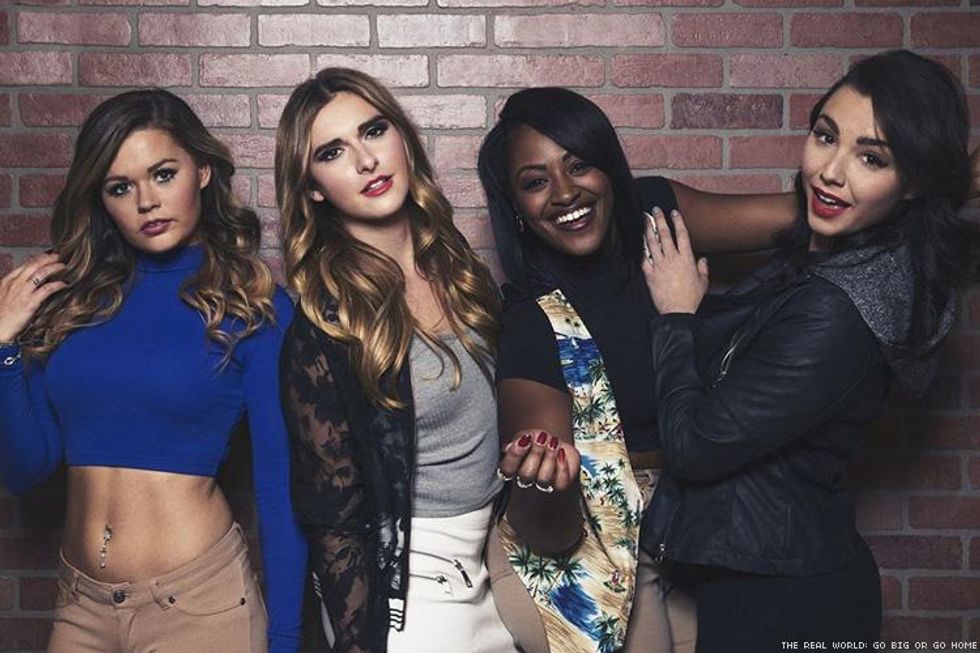


































































Charlie Kirk DID say stoning gay people was the 'perfect law' — and these other heinous quotes